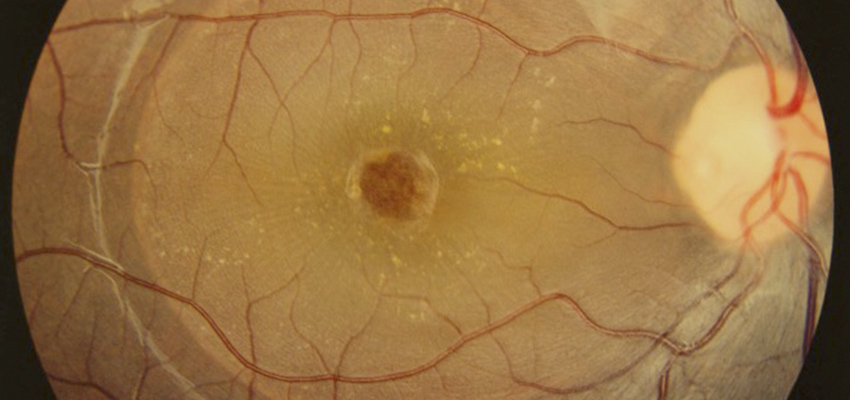
(305) 442-0066
Hialeah Office
North Miami Office

Most people with age related macular degeneration have the dry type of the disease. In this type, there are deposits, called drusen, under the retina, or degeneration of the layers under the retina (atrophy) with loss of photoreceptor function. Vision can range from minimal changes with the presence of drusen to severe loss with advanced atrophy. Dry macular degeneration can progress to wet AMD. There is no treatment for dry type of AMD, but prevention of progression to wet AMD is possible with a healthy diet and AREDS multivitamins. Wet AMD is typically treated with intravitreal anti-VEGF injections.
The retina is the light-sensitive layer of tissue that lines the inside of the eye and sends visual messages through the optic nerve to the brain. When the retina detaches, it is lifted or pulled from its normal position. If not promptly treated, retinal detachment can cause permanent vision loss.
In some cases there may be small areas of the retina that are torn. These areas, called retinal tears or retinal breaks, can lead to retinal detachment.
Diabetic retinopathy is the most common diabetic eye disease and a leading cause of blindness in American adults. It is caused by changes in the blood vessels of the retina.
In some people with diabetic retinopathy, blood vessels may swell and leak fluid. In other people, abnormal new blood vessels grow on the surface of the retina. The retina is the light-sensitive tissue at the back of the eye. A healthy retina is necessary for good vision.
If you have diabetic retinopathy, at first you may not notice changes to your vision. But over time, diabetic retinopathy can get worse and cause vision loss. Diabetic retinopathy usually affects both eyes.
Branch retinal vein occlusion occurs when, because of hardening of the arteries, a branch retinal artery compresses a branch retinal vein causing blockage of the vein and decreased circulation in the distribution of that branch retinal vein.
There are several possible treatments for branch retinal vein occlusion including intravitreal injections, laser, and even surgery. Patients with BRVO lose vision for several reasons: poor circulation, hemorrhage and macular edema (swelling). There is no treatment, at the moment, to increase circulation. The macular edema, however, does respond well to intravitreal injections with Avastin, Lucentis, Elyea or steroids.

2441 SW 37th Avenue
Miami, FL 33145
(305) 442-0066

202 E 49th Street
Hialeah, FL 33013
(305) 442-0066

2050 NE 163rd Street North
Miami Beach, FL 33162
Direct Line (786) 708-8372